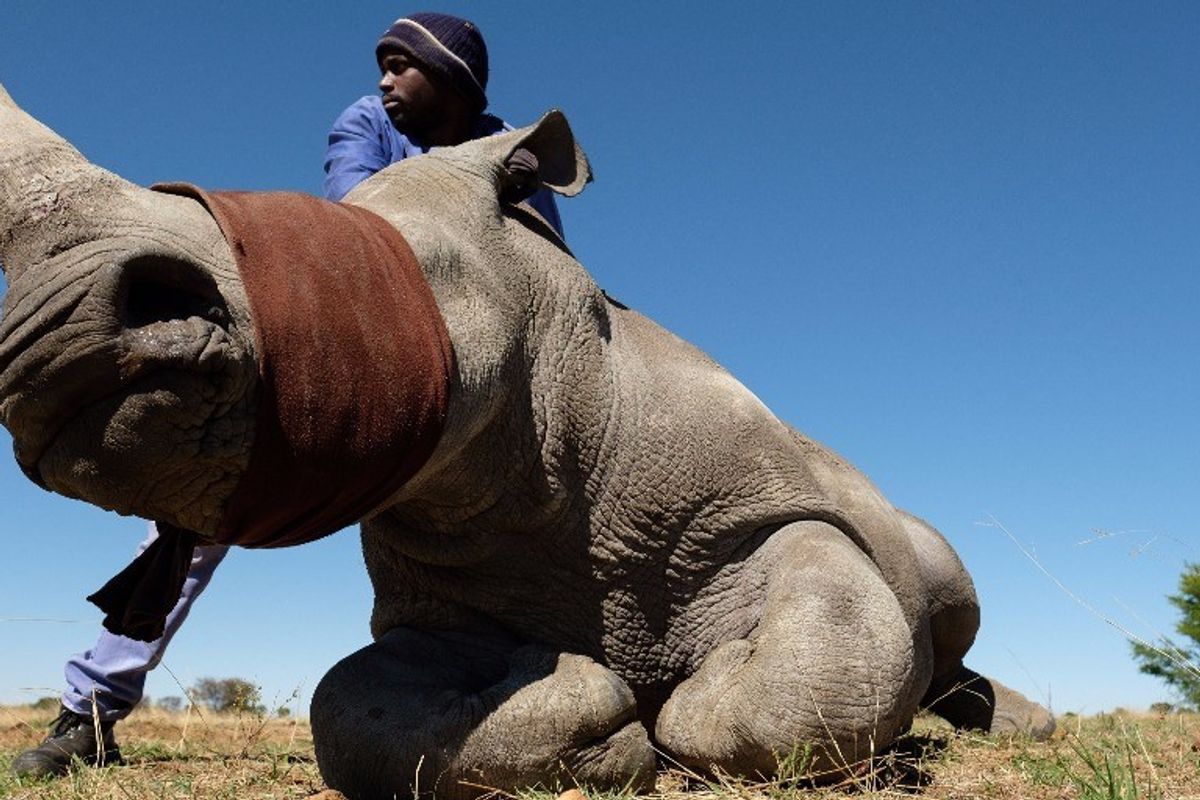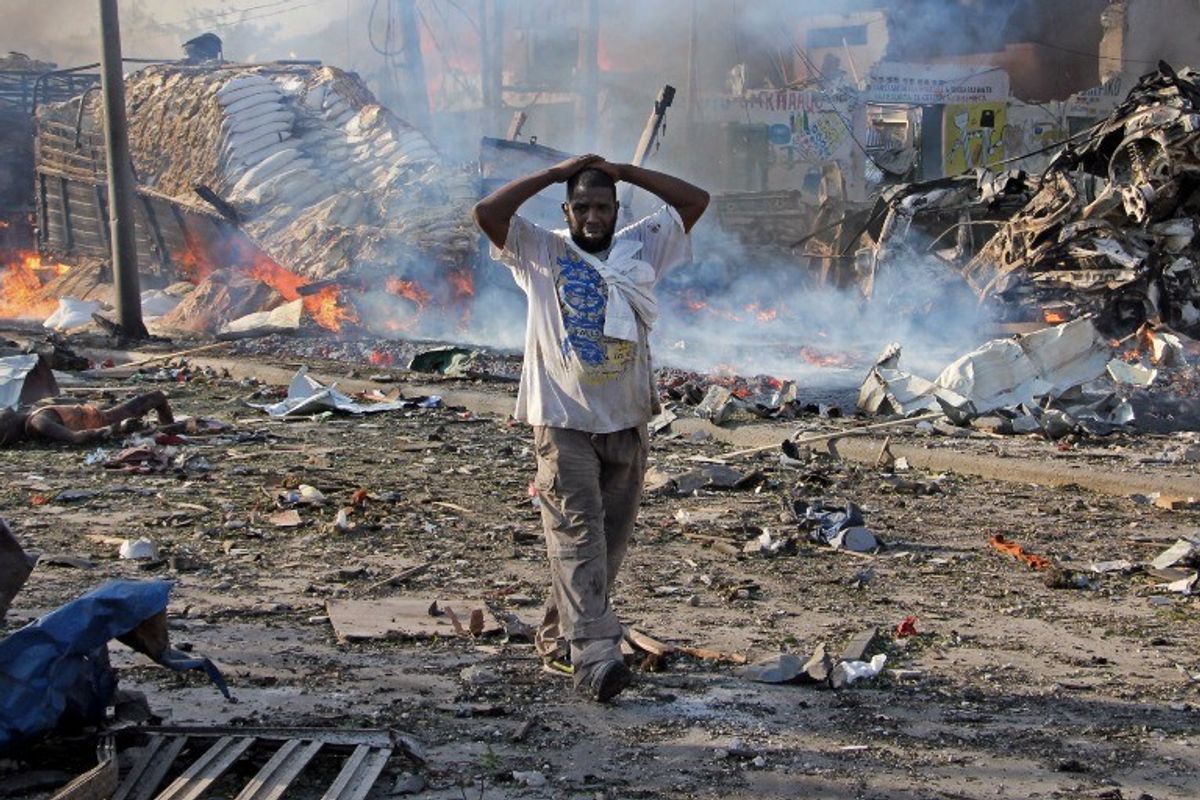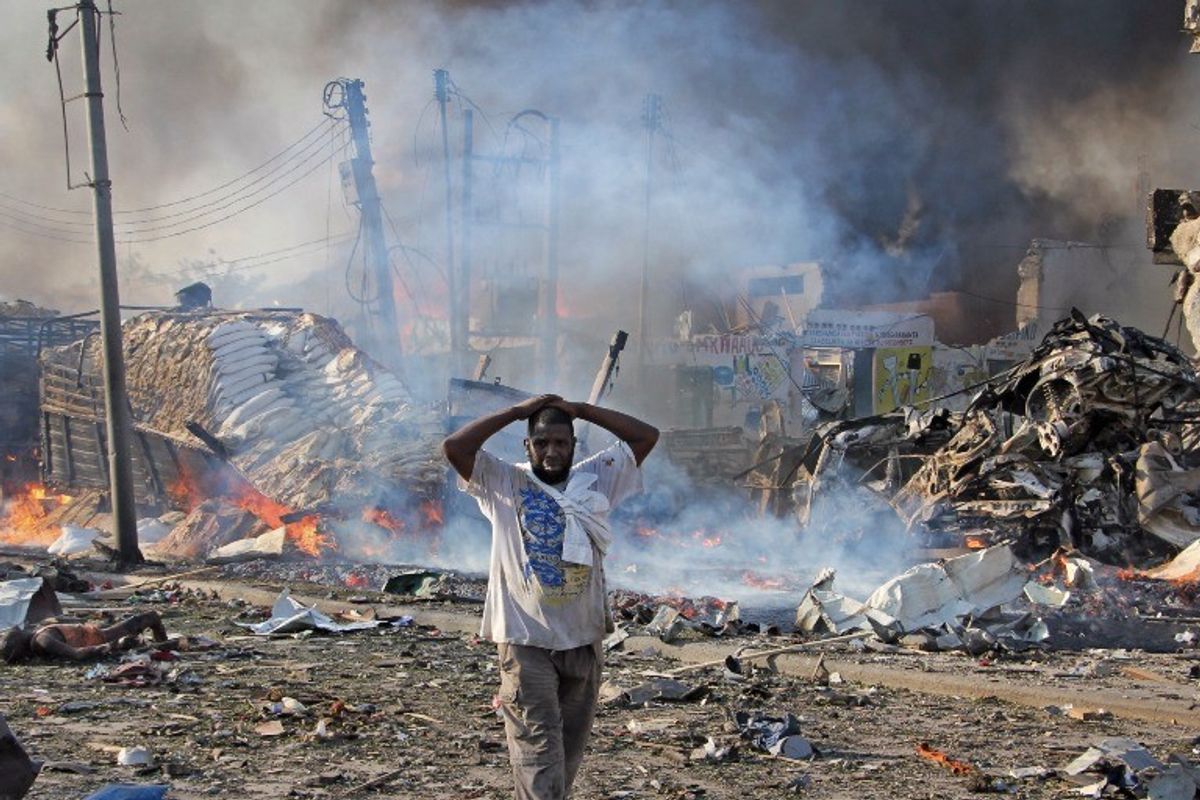Despite international efforts to combat the terrorist group, al Shabaab remains a dangerous adversary capable of inflicting mass casualties, as demonstrated by Saturday’s truck bomb in Mogadishu that killed more than 320 people. U.S. strategy in Somalia has centered on targeted strikes against al Shabaab militants as well as providing support to the central government as it attempts to oust al Shabaab from Somalia. However, al Shabaab continues to endure since it works with various clans and tribes throughout the country who view the central government as a more pressing threat than the terrorist group. The Cipher Brief’s Bennett Seftel spoke with Bronwyn Bruton, Deputy Director of the Atlantic Council’s Africa Center, about how the U.S. should fashion its strategy in Somalia.
The Cipher Brief: Back in February 2016, you wrote in The Cipher Brief that “al Shabaab is heartily disliked by most Somalis,” but have also said that “al Shabaab retains a base of support among disenfranchised clans.” From where does al Shabaab receive support?
Bronwyn Bruton: There are a couple of points to make here. First, al Shabaab doesn’t necessarily need a huge base of political support to do what it is doing. It is spoiling, and spoiling in a place like Somalia where there is very limited policing and law and order is not hard to do. The group doesn’t need massive numbers of people to get behind them to carry out the kind of truck bombing or suicide bombing that they have become associated with. Spoiling does not require a huge number of people backing them.
However, we should also keep in mind that al Shabaab is not the only group in Somalia that objects to the country’s government. The international community has made this a kind of polar conflict between al Shabaab and the Somali government, but the reality is that the vast majority of the Somali people don’t like the government, don’t like al Shabaab, and are cooperating opportunistically with one side or the other.
If you look across the country, what you see is that there are administrations springing up all over that are basically clan fiefdoms that are building walls to protect themselves from the incursions of the Somali government. Those groups occasionally cooperate with al Shabaab not because they like al Shabaab or they think al Shabaab is better than the government, but because the government is their bigger concern at that moment. So when we say support, you have to really parse the meaning of it, but you are essentially talking about opportunistic alliances – very temporary cooperation that’s intended to achieve a specific end.
At the moment, there is a lot of unrest in Mogadishu because the Somali government, with the support of the international community, is trying really hard to consolidate its military power and nobody is comfortable with that. You don’t have a political situation in Somalia that will support a monopoly of force inside a regime in Mogadishu. So the fact that the American and European decision-makers are pursuing a monopoly of force for the government is incredibly destabilizing. It’s the wrong approach.
Even U.S. allies in the region are not comfortable with the Mogadishu government having a monopoly of force. Kenya doesn’t support it because Kenya is off annexing a big corner of Somalia and standing up its own government there. It has a very difficult relationship with the regime in Mogadishu. Ethiopia has always been afraid of the idea of a strong Somali government because they’ve had wars with Somalia in the past. And those are the two closest allies in the region and they don’t want that. So the question is: why does the international community keep pursuing this approach when the Somali people and the region are not on board?
TCB: If bolstering the Somali military has not been effective, how should the U.S. proceed in Somalia?
Bruton: My view is that the U.S. has very limited objectives in Somalia. When it comes down to it, there has been a lot of talk over the years about failed states being terrorist havens, but the vast majority of those states in the world are not. You look at the Democratic Republic of the Congo and there are no terrorists there. The U.S. should not be worried about reconstructing a state, it should focus on eliminating individuals in Somalia who wish harm to the U.S. homeland. That’s a very small objective.
I would say that you could accomplish that without building a government for Somalia. In fact, building a government for Somalia in order to achieve that tiny objective of eliminating a handful of people that we find problematic is logically not very defensible.
What the U.S. should be doing is talking to actors in al Shabaab, including some of whom are radical and will not sit down that the table. But even the act of saying that we are going to talk to al Shabaab would help to identify who the real problematic actors are.
This desire that we have to control the political space in Somalia that is causing all of this bloodshed. I cannot understand why the U.S. continues to do it when it’s a losing battle. And there is absolutely no plan to get from point A to point B in terms of having a Somali government that stands on its own and can defend itself. I have never seen a realistic plan for accomplishing that.
TCB: Does al Shabaab have its sights set on striking the U.S. homeland?
Bruton: This is the key question. The real problem with the U.S. strategy in Somalia is that it causes groups of people to work together. A lot of the people who are calling themselves al Shabaab fall in and out of the organization. They can be bandits and they can be clan militias. The guy who is running the Southern Somali city of Kismayo used to be one of the most radical leaders of al Shabaab who ran training camps for al Qaeda back in the 1990s. He has been completely rehabilitated, got a better job offer, and now he is a friend of the U.S.
This is the reality of the Somali conflict. You have a lot of very pragmatic actors. They collaborate with al Shabaab because they have objections to the government or they can get weapons from al Shabaab that will help them gain territory from a rival clan that they haven’t been able to confront successfully. Al Shabaab has always played upon the pragmatic, local, and political equation to survive and operate.
What the U.S. needs is a strategy to break those groups apart. Instead, what it does by backing the government is it throws people who have trans-nationalist goals, who are true believers, and who really want an internationalist jihad and people who really couldn’t care less about Islamist ideology and really just want to ensure that another clan member doesn’t take their town into the same pot. We need the opposite of that. Dialogue is the easiest and fastest way to achieve that.
Ten years ago, there were suggestions that humanitarian relief was the easiest way to do it because true believers wouldn’t accept humanitarian relief, everybody else would, and everyone else would become angry that the relief was rejected. This is what you have to do – find the points of disagreement between the international jihadists and the Somali political actors and exploit them. That’s the smart way to go about strategy in Somalia, and the U.S. is doing the exact opposite.
TCB: Does al Shabaab’s exploitation of local grievances to gain support play into al Qaeda’s broader strategy resemble what we’ve seen the movement do in Syria and other countries around the world?
Bruton: From what I’ve seen, the best example of this is Boko Haram in Nigeria. The fear is not that al Qaeda will be able to get into a Somalia or a Nigeria and be able to exploit local grievances. The issue is that people who have local grievances will understand that Islam is a vehicle for getting money, weapons, tactical support, and training, and will then absorb the lessons of Islam. In the case of Boko Haram where you actually have a fairly radicalized Muslim population to start with in northern Nigeria, it then becomes a truly authentic and truly African kind of terrorist group that draws not only from the traditions of al Qaeda but also from the predatory traditions of African rebel groups such as the Lord’s Resistance Army, the March 23 movement, and the Janjaweed. These groups have displayed levels of violence that have exceeded those of al Qaeda and even ISIS. There are two very horrifically violent traditions that groups such as Boko Haram draw from.
When I look at Boko Haram, that is an institution that is a fully authentic African Frankenstein monster. Whereas when you look at al Shabaab, this is a group that is clearly attempting to govern and at least at one point had a desire to be legitimate. As they lose power, that is giving way and the group is now increasingly becoming a spoiler. But if you compare the antics of al Shabaab with Boko Haram, there is no comparison in terms of the real violence.
TCB: Bottom line, by propping up the Somali government and helping it consolidate power, the U.S. government’s strategy is actually backfiring and equipping Al Shabaab with more support?
Bruton: The strategy of supporting and building a government can work if you are willing to spend the resources that are required and if there is political will on the ground to make it happen. The problem is, the U.S. doesn’t have the resources and it doesn’t have the support from the Somali people. These are the two fundamental conditions and they are just not there.
The U.S. response to this over the past ten years has been to pretend that they are, and this week’s truck bombing is the result. And it’s not the last time it’s going to happen.
On top of that, you can add the famine in 2011 and the one that was very narrowly escaped a couple of months ago. These are both conflict induced and hundreds of thousands of people have suffered from it. The truck bomb killed 300 people, which is horrible, but if you think about the famine, it’s 100,000 times worse.










